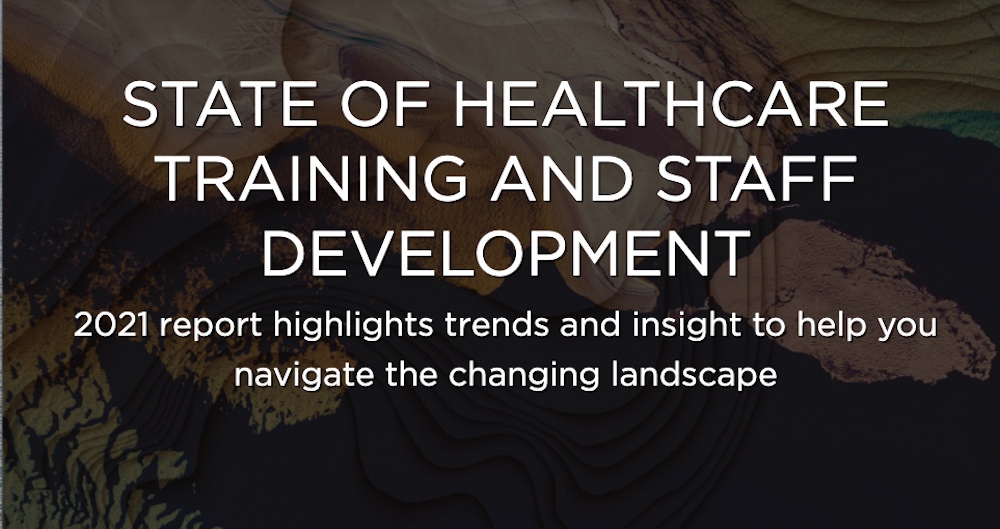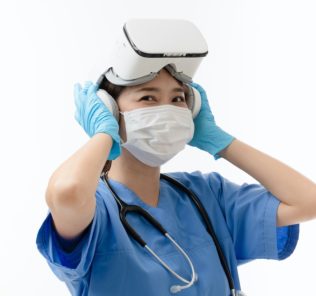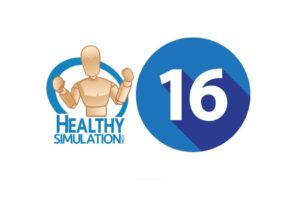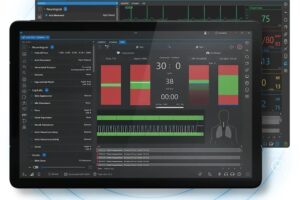State of Healthcare Training and Staff Development Report 2021
In order to keep up with the ever-changing medical field, leaders must constantly work to assess how factors influence effective training measures. First published in 2015, the State of Healthcare Training and Staff Development Report, published by Relias, is designed to update healthcare stakeholders on industry trends and inspire informed strategic planning for the future. Since COVID-19 first rocked the foundations of healthcare organizations, this healthcare training survey revealed several notable industry shifts. The full 2021 report takes a deep dive into the six findings and identifies sustainable strategies to help fulfill healthcare education and training goals amid inevitable and unexpected change.
Note, this report is a resource for the executives driving organizational performance and the individuals overseeing and delivering training programs in healthcare simulation and the medical industry overall. With the data and analysis in this report, these healthcare leaders can benchmark current practices, investments, and beliefs compared with a national sample. They can also work to identify ways to improve staff development and training opportunities.
As this study was designed to generate insights regarding the current state of training, the information provided can help leaders and educators better understand training drivers and emerging influences. These include perceptions of the strengths and weaknesses of existing training programs. Additionally, readers can learn about the perceived value and impact of staff development and training programs, which helps demonstrate value and align to business objectives. With this information, those in leadership positions can make data-driven decisions to adjust their training delivery or curriculum and better advocate for their programs.
Sponsored Content:
A total of 1,290 healthcare professionals qualify participated in this survey, with 44% of respondents holding executive or senior management positions. Alternatively, 56% held other key training stakeholder positions. Together, their responses yielded six major findings, detailed, along with supporting data and takeaways, below:
Finding 1: Of the 62% of respondents whose organizations have diversity, equity, and inclusion (DEI) initiatives, 90% support them with training. Yet only 40% of those with DEI training require managers to participate. Many organizations are recognizing the need for formal training and staff discussions to understand diversity-related issues. Building a firm foundation for this understanding provides a base for growth.
Finding 2: Being adaptable to changing needs (33%) and providing online learning (27%) were identified as the top strengths of healthcare training since the coronavirus pandemic began. Your staff and leaders should be prepared with accessible and adaptable learning tools so you can switch directions more easily when unforeseen demands occur.
“The pandemic has underlined the need to react quickly and communicate clearly amid waves of organizational change,” said Maria Samot, senior vice president of content development at Relias. “Continuous learning is a must for leaders to stay sharp and stay true to their teams’ purpose.”
Sponsored Content:
Finding 3: To support pandemic-related issues, top training needs were infection control (71%), pandemic planning and response (60%), and employee wellness and self-care (57%). These three training priorities show a range of urgent concerns during the coronavirus pandemic: advance planning and responding at the moment, providing high-quality patient care, and supporting staff members’ mental and physical health. In turn, these training needs can inform future crisis planning.
“Employee wellness in acute care will continue to be a great concern post-COVID, as the focus shifts to addressing the moral injury caused by the pandemic,” said John Harrington, director of clinical solutions at Relias.
Finding 4: More than two-thirds of respondents (67%) indicate that staff development and training have a significant or major impact on top business goals, but just as many respondents (68%) still don’t highly appreciate the financial benefits. Recognition of training’s organizational impact by two-thirds of respondents is gratifying. However, better communication and clearer connections between training, goals, and outcomes are needed to fully understand the ROI.
“If you don’t have a dedicated training budget, as well as an automated way to track your training and monitor your client outcomes, you’re missing opportunities to show the value of staff development,” added Samot.
Finding 5: Lack of communication (21%) and inability to match shifting needs (14%) are perceived as weak spots in healthcare organizations’ training and staff development programs. Find ways to support your busy staff members by communicating consistently about training and development — and even more. Take time to explain the why behind the what, share expectations, and listen to concerns.
“In my experience, professional development offerings, including the emerging leader and clinical ladder programs for nurses can improve staff engagement and retention,” said Trish Richardson, MSN, BSBA, RN, NE-BC, CMSRN, director of post-acute care solutions at Relias. “These programs also provide your organization a stronger recruitment message and competitive advantage in today’s tight labor market.”
Finding 6: Less than a third of respondents (32%) say they have tapped into the power of data and analytics tools to inform staff training assignments. Time spent assessing strengths and weaknesses, analyzing skill gaps, assigning individualized training, and collecting learning and outcomes data can pay off in terms of your time, money, and reputation.
“Data guides action and provides the foundation for clinical educators to individually craft onboarding, precepting, and development pathways,” added Richardson.
More About Relias
For more than 10,000 healthcare organizations and 4.5 million caregivers, Relias continues to help clients deliver better clinical and financial outcomes by reducing variation in care. The company’s platform employs performance metrics and assessments to reveal specific gaps in clinical knowledge and addresses them with personalized, engaging learning. Relias helps healthcare organizations, their staff, and those under their care, get better: get better at identifying issues, get better at addressing them, get better outcomes for all.
Read the Full Healthcare Training and Staff Development Report
Lance Baily, BA, EMT-B, is the Founder & CEO of HealthySimulation.com, which he started while serving as the Director of the Nevada System of Higher Education’s Clinical Simulation Center of Las Vegas back in 2010. Lance is also the Founder and acting Advisor to the Board of SimGHOSTS.org, the world’s only non-profit organization dedicated to supporting professionals operating healthcare simulation technologies. His co-edited Book: “Comprehensive Healthcare Simulation: Operations, Technology, and Innovative Practice” is cited as a key source for professional certification in the industry. Lance’s background also includes serving as a Simulation Technology Specialist for the LA Community College District, EMS fire fighting, Hollywood movie production, rescue diving, and global travel. He and his wife Abigail Baily, PhD live in Las Vegas, Nevada with their two amazing daughters.
Sponsored Content:




















